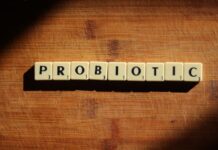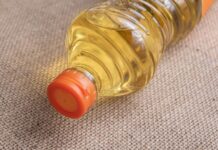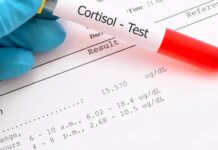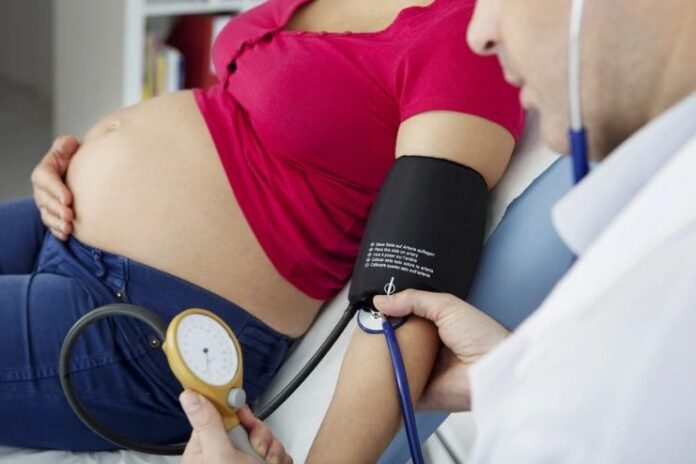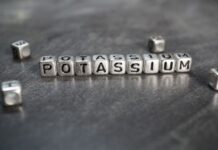AI Contribution
At HealthSpectra, we may use AI to refine grammar and structure, but every piece is shaped, checked, and approved by real people, our expert writers and editors, to ensure clarity, credibility, and care. Learn more..Affiliate Disclaimer
Some links in this article are affiliate links. We may earn a small commission if you make a purchase through these links, at no extra cost to you. We only recommend products we find useful to our readersHypertension is often referred to as a silent killer, as it can develop without noticeable symptoms and has become increasingly common across all age groups. Factors such as irregular eating habits, junk food, lack of exercise, unhealthy lifestyle choices, work-related stress, and insufficient rest can all contribute to high blood pressure.
Hypertension is also prevalent during pregnancy, known as gestational hypertension or pregnancy-induced hypertension (PIH). A proper gestational hypertension diet can help manage and control high blood pressure during your pregnancy.
Gestational hypertension can lead to more serious complications, such as preeclampsia (also referred to as toxemia). Approximately 6-8% of pregnant women are affected by hypertension during pregnancy.
Types of Gestational Hypertension
The following are the common types of gestational hypertension:
- Chronic Hypertension: This affects women who have high blood pressure (above 140/90) before pregnancy, early in pregnancy (before 20 weeks), or who continue to have high blood pressure after delivery.
- Gestational Hypertension: This type develops after 20 weeks of pregnancy and typically returns to normal after delivery.
Both chronic hypertension and gestational hypertension can lead to the severe condition of Preeclampsia after 20 weeks of pregnancy.
Symptoms may include high blood pressure and protein in the urine. If not treated promptly, preeclampsia can cause serious complications for both the mother and the baby.
Essential Dietary Guidelines For Gestational Hypertension
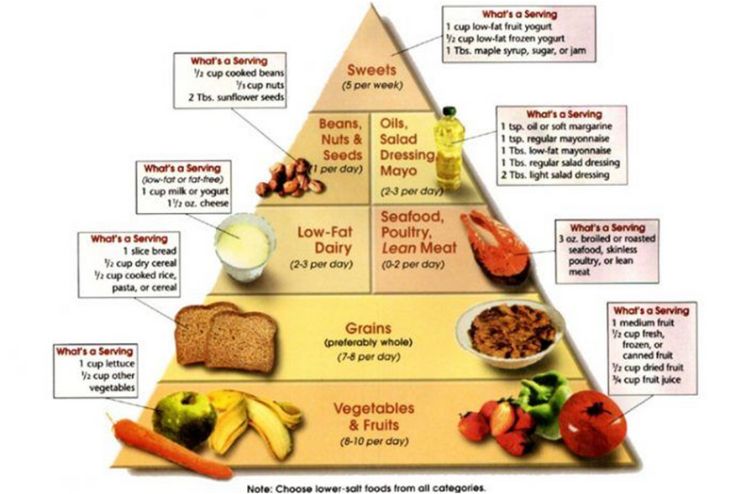 A proper diet is essential to ensure the growth of the baby and may help prevent the progression of pregnancy-induced hypertension (PIH).
A proper diet is essential to ensure the growth of the baby and may help prevent the progression of pregnancy-induced hypertension (PIH).
Below are the key vitamins and minerals you must watch for:
- Calcium is commonly found in dairy foods such as milk, yogurt, and cheese. It plays a vital role in the body by helping to form and maintain bones and teeth and supporting the heart in maintaining a normal beat.
Calcium also aids blood clotting, nerve signal transmission, and hormone release. A pregnant woman needs at least 1,300 milligrams of calcium per day to develop the baby’s bones and maintain her own bodily functions.
- A Sodium-Restricted diet is not particularly effective in treating or preventing mild pregnancy-induced hypertension. However, limiting salt intake to 2 grams per day may help reduce swelling if you are experiencing edema (swelling).
- Balanced Macronutrients: During pregnancy, women with gestational hypertension should prioritize carbohydrate intake, which should account for 50% to 65% of their total daily calories.
Additionally, they should aim for a daily protein intake of 71 grams, or 1 gram of protein per kilogram of body weight. The remaining 20% to 30% of daily calories should come from fats.
- Avoid Certain Foods: Managing gestational hypertension requires minimizing diet-related risks that may worsen your condition. Although pregnant women are generally more susceptible to foodborne illnesses, such illnesses can cause inflammation and stress on the body, which can exacerbate hypertension.
Avoid soft cheeses, including brie, feta, and Mexican soft cheese, and deli meats that could be contaminated with Listeria. Some forms of Listeria infections can complicate pregnancy and contribute to the risk of preterm labor or other complications.
Other fish with high mercury levels, such as sharks, swordfish, and mackerel, should be avoided. Mercury toxicity can negatively impact cardiovascular health, which is already a concern in gestational hypertension.
Raw or undercooked eggs, meat, poultry, and fish, as well as unpasteurized juices and raw sprouts, should also be avoided for the same reasons. This reduces the risk of infections that may indirectly strain blood pressure regulation.
Dietary Guidelines for Gestational Hypertension
- Eat Smaller, More Frequent Meals: These help maintain steady blood sugar levels preventing the accumulation of excess weight that in turn could cause unwarranted hypertension during pregnancy.
- Do not Fast or Miss Meals. Skipping meals is likely to cause a condition known as low blood sugar, which increases stress on the body and leads to increased gestational hypertension.
- Include a Mix of Nutrient-Dense Foods: Focus on getting a good balance of proteins, whole grains, healthy fats, and fresh produce for nutrient needs.
- Use Low-Fat Versions of Dairy Products: For calcium, select low-fat or fat-free milk, yogurt, and cheese, avoiding extra saturated fats. Calcium supports bone health and lowers blood pressure. Consume at least 1,000 milligrams of calcium per day.
- Consume Lots of Fresh Fruits and Vegetables: Many green, leafy vegetables like spinach, kale, and Swiss chard are full of magnesium and potassium, both good for keeping your blood pressure at healthy levels.
- Eat Potassium-Rich Fruits: Potassium helps regulate fluid balance, countering sodium’s blood-pressure-elevating effect. Include bananas, oranges, cantaloupe, apricots, and avocados in your diet.
- Meet Your Protein Requirements: Adequate protein, around 71 grams per day, is needed for both mothers and their growing fetuses. Examples include lean meats and poultry, eggs, fish low in mercury, beans, lentils, tofu, and quinoa.
- Use Whole Grains: Use oats, brown rice, quinoa, and whole-grain bread or pasta, which are full of fiber and help keep your blood pressure within normal limits.
- Avoid Processed and High-Sodium Foods: Limit sodium intake to less than 2,300 milligrams per day, or as your healthcare provider advises. Too much salt can cause fluid retention and exacerbate gestational hypertension.
- Hydrate Adequately: Fluid balance is an important aspect of overall health, and hydration is crucial in managing fluid balance. Drink at least 8–10 cups of water per day unless otherwise instructed by your doctor.
- Limit or Avoid Certain Foods: Avoid foods that may cause foodborne illnesses, such as raw or undercooked eggs, meat, poultry, and fish, as well as unpasteurized dairy products. Also, avoid any fish that have high mercury, such as shark, swordfish, and king mackerel, since mercury can affect a baby’s nervous system.
- Include Vitamin A Sources: Add vitamin A-rich foods like carrots, sweet potatoes, and fortified dairy products. These support immune function and cell growth but should be consumed in moderation to avoid excessive intake.
- Iron-Rich Foods are Key: Prevent anemia by consuming iron-rich foods such as fortified cereals, spinach, lean red meats, poultry, and legumes. Pair these with vitamin C-rich foods (like oranges or bell peppers) to enhance iron absorption.
- Healthy Snacks for Energy: Snack on unsalted nuts, seeds, Greek yogurt, or boiled eggs for sustained energy and additional nutrients.
Conclusion
To effectively manage gestational hypertension, you need a focused diet that takes into consideration the health of both the mother and the baby.
Therefore, a good diet should be high in calcium, potassium, magnesium, and, of course, top-quality protein but low in sodium and processed food to control high blood pressure levels and minimize possible complications like preeclampsia.
Rich intake of fruits, vegetables, whole grains, and healthy fats supports optimal nutrition and general well-being during pregnancy.
Small, frequent meals and proper hydration help to maintain a steady energy level and avoid unnecessary stress on the body.
Women with gestational hypertension can proactively manage their condition, protect their health, and ensure the best possible outcomes for the baby by following these dietary guidelines.
Always consult your healthcare provider for personalized advice tailored to your needs.
-
Jan 2017Written by Premji
-
Jan 2025Edited by Lakshmi Gayatri
In this Article



